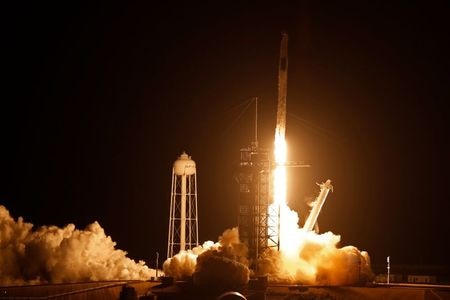Business of Space: What’s the deal with space traffic?

This week
- Starlink makes a stance
- UK’s SaxaVord enters French market
- What’s the deal with space traffic?
SpaceX
SpaceX boss Elon Musk said today that its Starlink, a satellite broadband service, has been urged to block Russian news sources by some governments, but not Ukraine.
Tweeting on Saturday, the billionaire entrepreneur said: “We will not do so unless at gunpoint. Sorry to be a free speech absolutist.”
Musk added that after focusing on cyber defence and overcoming signal jamming for terminals near the Ukrainian conflict, there will be slight delays for its highly anticipated Starship and Starlink V2.
Starlink had sent Ukraine a number of satellite terminals on Monday, after Russia’s invasion had disrupted the country’s internet connection.
It marks a new era of collaboration for Space 2.0, following its Cold War predecessor.
SaxaVord Spaceport
The UK’s SaxaVord Spaceport has this week crept into the French market, as Britain’s flourishing space industry seeks to wield its capabilities across the continent.
Agreeing a deal with French small launch rocket developer Venture Orbital Systems (VOS), Saxa and VOS intend to develop plans for a first launch in 2024.
VOS, which is developing a 15m rocket known as Zephyr for low earth orbit deliveries such as satellite replacements, will conduct its first engine tests this year.
The small payload specialist hopes to reach 15 launches by 2026 and 40 by 2030.
“This agreement highlights the fact that Saxa is very much a spaceport for Europe and European launchers, and strengthens our continental presence,” director of business development of Saxa, Robin Huber said in a statement on Tuesday.
And while the broadening of Saxo’s reach into the European launch market signals the current momentum behind the UK’s space industry, the increasing number of launching states illuminates a key worry for industry figureheads and politicians alike – space traffic.
Space traffic
Policymakers are facing a challenge as to how to tackle space traffic, an issue which has only arisen in recent years, as the space-venturing tally of businesses grows.
“The challenge for legislators will be to properly incentivise operators to be accountable for their impact in the space environment. Current international laws on liability for damage in orbit were designed at a time when states were the only actors in space and fail to properly compensate or allocate responsibility for damages caused in orbit,” Linklaters associate Danny Greenland told City A.M.
“New legislation should seek to strike a balance, granting commercial actors effective mechanisms to seek redress for damage caused to their spacecraft, in exchange for obligations to minimise, track and dispose of debris created by their activities.”
Last week, the UK Space Agency announced it would co-host a global summit to agree new ways of ensuring a safe, sustainable and secure space environment, including tackling space debris which threatens satellites.
Science minister George Freeman called for “safe space”, in which space traffic and debris removal, as well as satellite tracking and in-orbit servicing, have “proper governance”.
“As our reliance on satellites for everyday activity grows and the UK becomes a hub of small satellite design, manufacturing and launch, we are at the forefront of ensuring a safe and secure space environment,” Freeman said in a statement.
“With more than a thousand satellites launched last year alone, “safe space” means proper governance of space traffic, debris removal, satellite tracking and in-orbit servicing.”